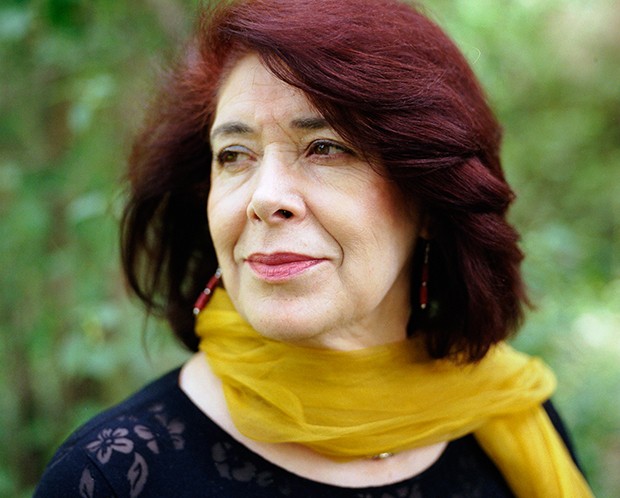Assia Djebar remembered
 Assia Djebar received an honorary doctorate from Concordia in 2002. | Photo by Ulla Montan
Assia Djebar received an honorary doctorate from Concordia in 2002. | Photo by Ulla Montan
On February 6, 2015, the great Algerian writer Assia Djebar died in Paris. The world has lost a wonderful artist whose values, which have been so necessary over the years, will continue to light our path.
Before describing her relationship with Concordia, it is probably necessary to add some biographical information about her, either to introduce her to readers for the first time or to refresh the memories of those who have met or read her work.
Of Berber origin, she was born in 1936, in Cherchell, a small coastal town in Algeria. Thanks to her father’s progressive ideas, she attended both the French elementary school where her father taught and — unlike most Algerian girls of her age — the lycée, or high school, in the nearby city of Algiers. She also studied the Koran.
Djebar continued her studies in Paris, and in 1955, was the first Algerian woman accepted to the prestigious École normale supérieure de Sèvres. She received an undergraduate degree in history from the Sorbonne in 1956. She later earned a doctorate in French literature and civilization from the Université Paul-Valery Montpellier III in France. In 2005, she became the first Muslim woman to be admitted into l’Académie française, an exclusive institution founded in the 17th century.
And what of Concordia? Her first contact with us came in 1982. In my capacity as principal of the Simone de Beauvoir Institute and as a professor in the Département d’études françaises, I had long been interested in her work. The opportunity to meet her came that year.
I was a member of the executive committee of L’association des professeurs de français des universités et collèges canadiens (APFUCC), one of the learned societies that met once a year at the Congress of the Humanities and the Social Sciences. My position allowed me to help choose guests for the event. I suggested Djebar and Jeanne Hyvrard, another writer whom I also much admired. They both willingly attended and certainly impressed those present.
In 1994, we in the Département d'études françaises organized an international conference in Djebar’s honour. Many different people attended, including the Algerian ambassador’s wife and daughter; the ambassador attended the evening events.
Our own students included many from the Arab world, and they were excited, proud and happy to see that their “own writer,” so to speak, was being honoured in Montreal, in their university and in the presence of the ambassador.
The high point in Concordia’s history with Djebar came in 2002, when Concordia granted her an honorary doctorate, which she was happy to accept. I cannot find words to express my emotions the day when I formally introduced her to the university’s chancellor.
Although deeply attached to her Berber and Algerian traditions, Assia was always rather too rebellious to behave according to the normal model of a young Algerian/Muslim daughter. In 1956, she participated with her French counterparts in what became a major student strike. It was the early years of the Algerian struggle for independence, and during this period, she wrote her first novel, La Soif, published in 1957. This is the point at which she started to use a pseudonym (she was born Fatima Zohra Imalhayene).
A young Muslim woman publishing under her own name would have brought a certain degree of shame to her parents, and Assia chose her pen name as a show of respect to them.
After her first book was published, she never stopped writing and completed novels, a play, poems and essays. Her works, written in French, have been translated into close to 20 languages, including Arabic, Turkish, Russian, Swedish, Bosnian and Slovene.
Assia’s career never followed a straight line. She travelled a great deal, worked and taught in many cities — most recently in New York. Her interests were equally varied, and in the late ’60s and early ’70s, she was involved in theatre adaptations and directing, and worked as a film critic for a Paris newspaper. She turned to cinema to reach those who could not read. She made her first film, La Nouba des femmes du Mont Chenoua, in 1979. In the early ’80s, she was a jury member for film festivals in Paris, Florence, Lucarno and Taormina.
She remained always committed to questioning the established order, an activity she pursued until her final years. It was assumed that she would one day win the Nobel Prize for literature, but, alas, she died too soon.
Throughout the past half-century, Assia Djebar drew attention to and redefined the role of women in Islamic and pre-Islamic society. Her work has been instrumental in revealing the Arab and Berber cultures of her homeland. Through her writings and other activities, she has been and will always remain a vibrant voice that bridges major cultures and offers new hope. We are proud to have known her.
Learn about Assia Djebar’s honorary doctorate from Concordia.